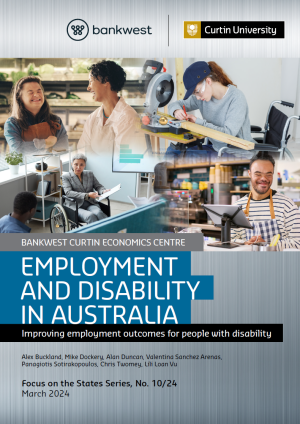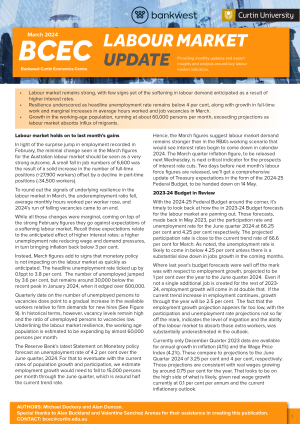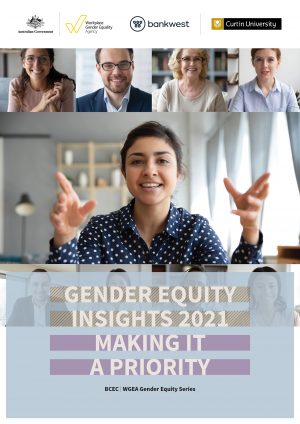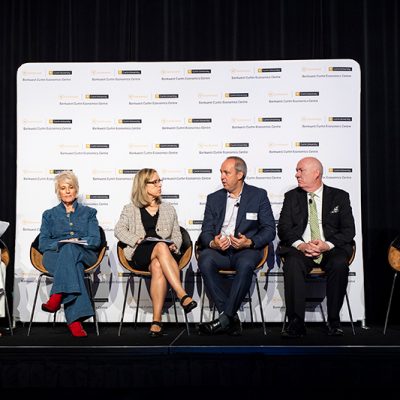Gender Equity Insights 2021: Making it a Priority
For seven years, non-public sector organisations in Australia with more than 100 employees reported annually to the Workplace Gender Equality Agency (WGEA) on gender equality policies and practices in their organisations. This world-leading data base has advanced our understanding of what initiatives works to create more gender equitable workplaces and what this can mean for better business outcomes.
In this sixth BCEC|WGEA Gender Equity Insights report, Gender Equity Insights 2021: Making it a Priority, we uncover further insights about effective initiatives to improve gender equality across Australia’s workplaces, by identifying the top performers, who have consistently taken steps to improve gender equality outcomes over the last seven years.
Through our Gender Equality Good Practice Index, we find that the consistent application of workplace policies and actions delivers better gender equality outcomes, translating to lower gender pay gaps and more women in senior leadership roles.
But there is considerable evidence of a level of apathy among Australia’s biggest organisations when it comes to progressing gender equality.
This apathy exists in efforts to increase the number of women on Boards, to narrow the gender pay gap through regular audits, and the implementation of policies and practices that help make workplaces more gender equitable.
What’s more, it is organisations with a higher concentration of women that tend to be the most apathetic.
The risk from complacency is that we will lose the hard earned gains in recent years in improved gender equality outcomes.
Key findings
- The gender pay gap has fallen from 24.7 per cent to 20.1 per cent and at this rate of change will take another 26 years for the full-time gender pay gap for total remuneration to close;
- A 4.4 percentage point reduction in the gender pay gap of managers between 2015 and 2020 and a 2.3 percentage point reduction for non-managers among companies that are the most consistent when it comes to gender equity policies and actions;
- A 1.4 percentage point reduction in the gender pay gap of managers for the same period and no change for non-managers among companies that are the least consistent when it comes to gender equity policies and actions;
- The mining sector was most improved for following the best gender equity practices with an increase of 8.4 points over the last five years;
- Organisations in the education and training, health care and social assistance sectors ranked lowest on average in terms of their approach to gender equity in the workplace, and showed least improvement over the last five years;
- The rate of pay audit actions has slowed, increasing by only 1.7 percentage points in the latest WGEA reporting data, while in previous years it has averaged growth of 3.7 percentage points;
- Organisations that consistently undertook pay gap audits saw their managerial gender pay gap narrow at a faster rate than other companies, by up to 2.2 percentage points between 2017 and 2020;
- Organisations that set consistent Board targets saw the share of women on Boards increase by 7.3 percentage points, lifting from 21.6 to 31.1 percent between 2015 and 2020; and
- An increase of only 3.5 percentage points for companies that did not set any targets for women on Boards.








